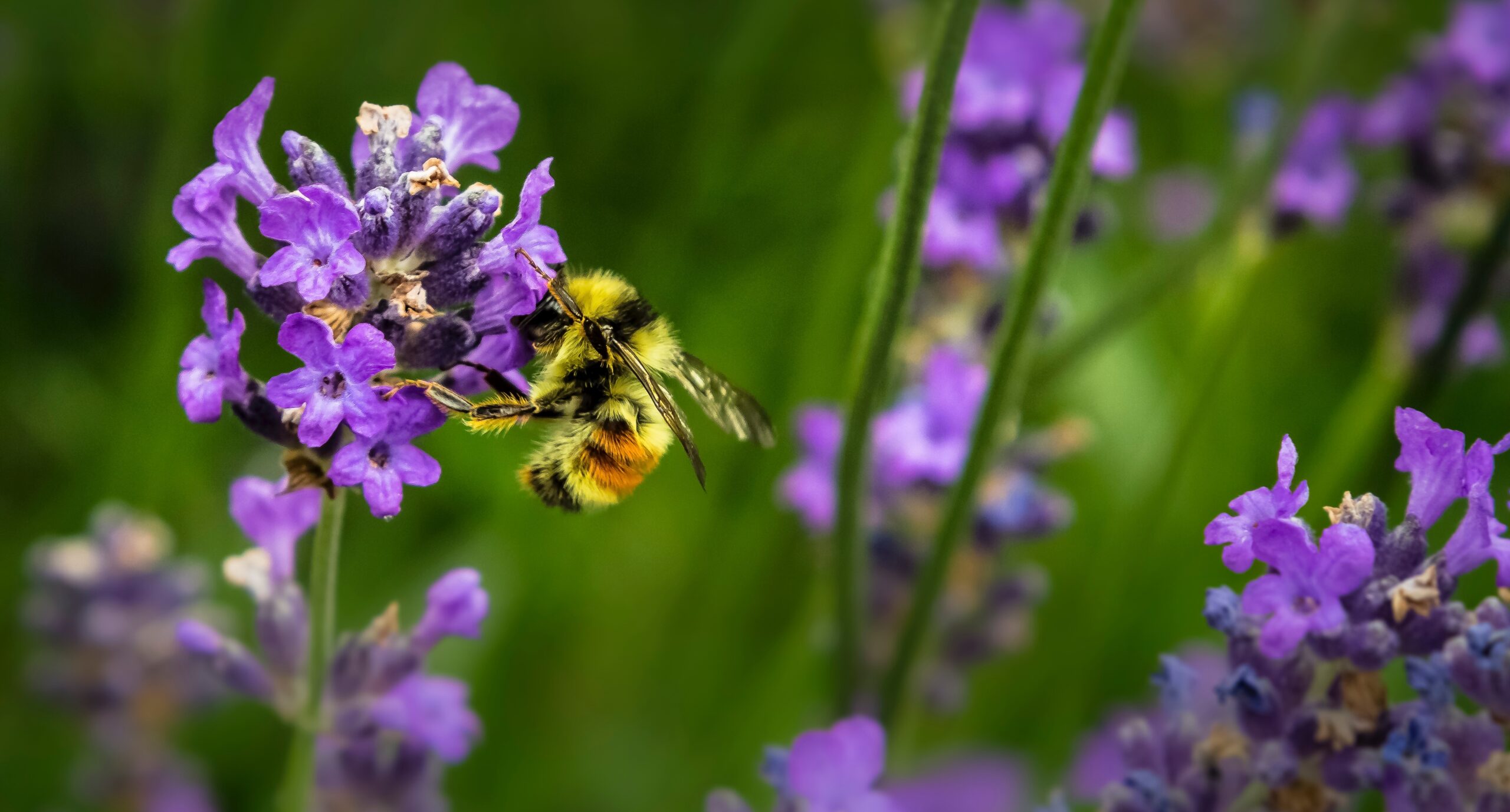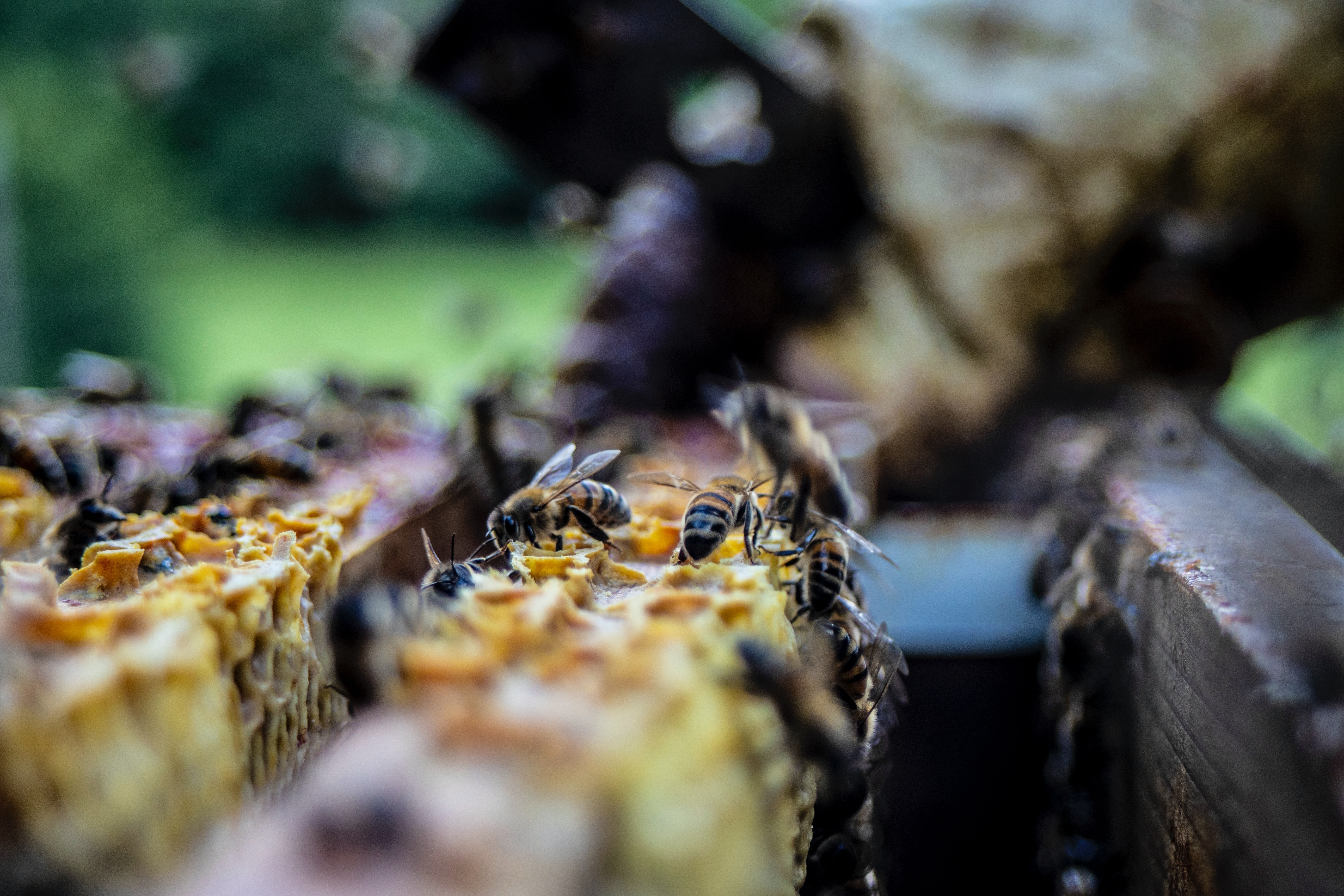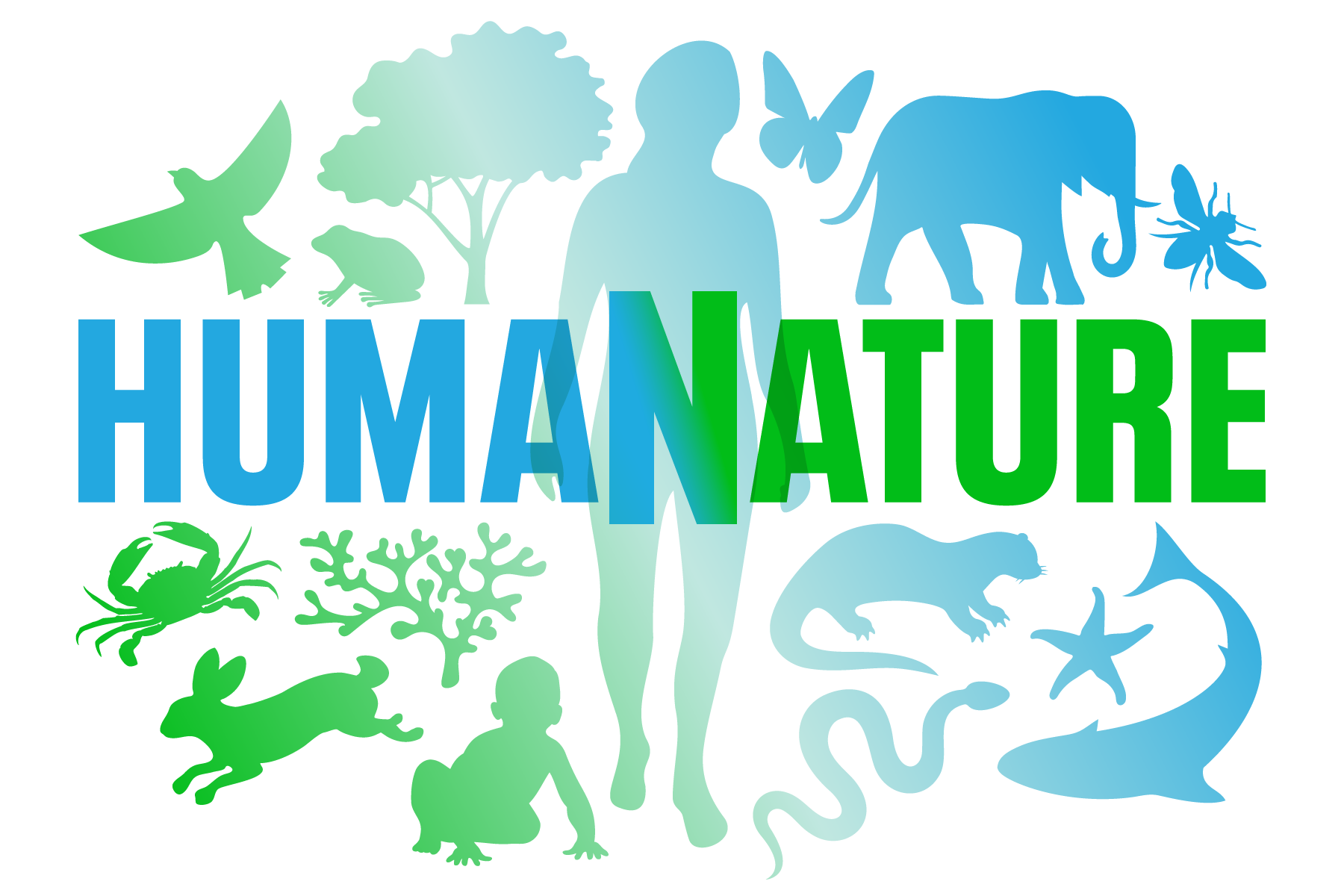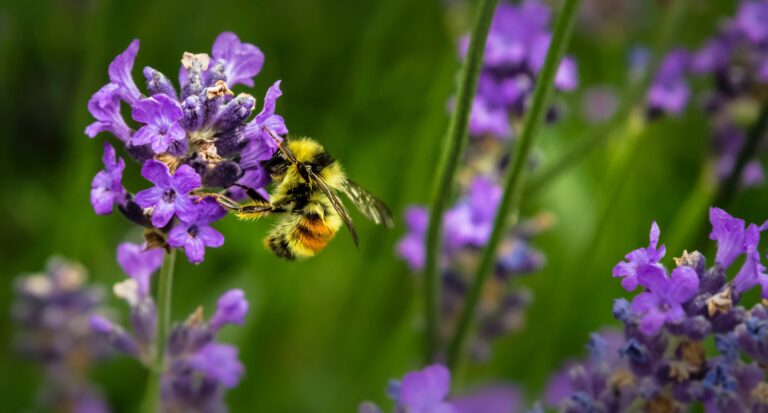
Take action: protect insects from pesticides
We are in a biodiversity crisis with insects, including pollinators, particularly in trouble. Modern, industrial-scale agriculture, driven by population growth and with its heavy reliance on pesticides, is a key contributing factor. Take action as part of our HUMANATURE campaign’s Insect Populations Matter initiative and do your bit to protect bees and other crucial insects from these hazardous chemicals.
MODERN AGRICULTURE VS NATURE
Modern, intensive agricultural methods are incompatible with insects and nature in general. Most agriculture relies on inputs that have adverse spillover effects beyond the farmed area itself. A case in point is the extensive use of pesticides – these kill not only identified ‘pests’ but other insects in the vicinity, and poison insects’ habitats on land and in water.
Our current agricultural system, with its emphasis on monocultures (areas covered by a single crop) and close crop rotation, relies on pesticides to control crop-damaging insects that single crops are so vulnerable to, and on fertilisers that make close crop rotation possible. These practices increase crop yields, but exact a high price from the environment.
A recent Chatham House report, which looked at food system impacts on biodiversity loss, identified the global food system as the primary driver of biodiversity loss, spurred by the use of ”fertilizer, pesticides, energy, land and water, and on unsustainable practices such as monocropping and heavy tilling”.
So the need to find more sustainable farming methods that promote biodiversity and minimise pesticide use could not be more urgent.


THE EFFECTS OF PESTICIDES ON BEES
Bees, including honey bees that live in colonies and solitary bee species, are crucial as pollinators. Without them, a large number of our food crops would not grow. The impact of pesticides on bee species is therefore of great concern.
The toxicity of pesticides is a key issue. Modern pesticides have much lower toxicity to people, wild mammals and birds and are generally applied in lower amounts nowadays, but they are have become more toxic to invertebrates. A study published last year revealed that higher toxicity outweighs the lower volumes in use, leading to a more deadly overall impact on bees and other pollinators.
Of all the types of pesticides that harm bees, one group is particularly insidious. Known as neonicotinoids, they are coated on seeds or sprayed on soil. They then permeate the tissue of plants, eventually showing up in pollen and nectar. These pesticides disrupt learning and memory in honey bees, and several studies have shown solitary bees suffer the same kind of damage. At higher levels, the chemicals impair reproduction, such as by reducing the viability of sperm, leading to fewer offspring.
A study on North American blue orchard bees has also revealed that pesticides (in this case a neonicotinoid called imidacloprid) can harm bees twice – as larvae and adults – starting a cycle of harm that then accumulates over generations.
TAKE ACTION
You can make a difference for bees!
If you are resident in the UK or a British citizen living abroad, please sign this parliamentary petition entitled Save the bees: cut hazardous pesticides and support nature-friendly farming. The text of the petition reads as follows:
The Government should introduce an ambitious target for pesticide reduction, aimed at decreasing the overall amount used and toxicity levels. This should be coupled with new support for farmers to adopt alternative approaches to protecting crops, such as integrated pest management.
Using pesticides to protect crops must be balanced against the long term dangers they pose to nature, such as harming critical pollinator species. For example, neonicotinoids are highly toxic to bees, but despite being prohibited the Government has authorised their use.
A clear pesticide reduction target, alongside new support for farmers in adopting alternative approaches, should encourage innovation and help protect the health of the British countryside and food security for future generations.
If the petition, which will be active until 28 December 2022, reaches 100,000 signatures, it will be considered for debate in the UK Parliament.
This action is only for people resident in the UK and British citizens living abroad. If you are not British and live in another country but have friends and/or family in the UK, you can take part by sharing the action with them.

